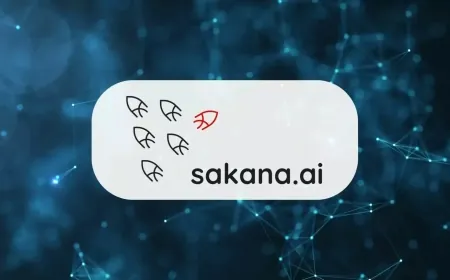Onton Raises $7.5M to Add Clothing and Electronics to Its AI Shopping Platform
Onton raised $7.5M after growing to 2M users, now preparing to offer clothing and electronics alongside its AI furniture shopping and design tools.

Millions of people now turn to AI to help them shop online. Onton — a startup originally focused on home furniture — plans to become one of the companies leading that shift. It has raised $7.5 million in new funding to scale its AI shopping features across more product categories and grow its team.
The round was led by Footwork, with participation from Liquid 2, Parable Ventures, 43, and other investors. Onton has now collected about $10 million in total funding.
From Furniture Search Tool to AI Shopping Companion
Only a year ago, Onton had around 50,000 monthly users. Today, it reports over 2 million, driven largely by shoppers who want a faster way to look through endless online catalogs.
Onton lets people:
- Upload a photo of their space and ask the AI to furnish it
- Search using images instead of text
- Generate design layouts and swap items in and out
- Compare store listings in a single interface
The company says these tools help customers make decisions instead of getting stuck scrolling product pages. According to Onton, shoppers are 3–5 times more likely to complete a purchase on its platform than on traditional e-commerce sites.
A Different Kind of AI Search
Most e-commerce search tools depend entirely on product descriptions provided by retailers. Onton claims to go further by teaching its system to infer real-world attributes that aren’t spelled out.
Example:
If someone asks for a pet-friendly sofa, the AI can identify fabrics like polyester that resist scratching and stains — even if the retailer never mentions pets.
Co-founder Zack Hudson says this requires more than a large language model (LLM). Onton uses a neuro-symbolic system that mixes neural networks with logic rules so results stay grounded in actual product qualities — not guesses.
“Shopping terms aren’t standardized. The same lamp might be called three different things on three websites,” Hudson said.
“We’ve trained our system to connect those differences so people actually find what they’re looking for.”
Why the Company Changed Its Name
Onton was originally called Deft. The team changed the name earlier this year after running into domain availability issues and concerns that “Deft” was too generic to build a strong brand around.
The company says the rebrand helped improve recognition — especially as it begins expanding beyond furniture.
Clothing and Gadgets
The money will be used to enter apparel first, followed later by consumer electronics — two large online shopping categories where decision-making can be overwhelming.
Those expansions will also put Onton into new competitive battles:
- Daydream, Aesthetic, and Style.ai in fashion
- Big-tech giants in electronics, including Amazon and Google
Hudson believes Onton’s visual and data-driven approach will translate well to these categories because shoppers want to understand fit, style, and compatibility before purchasing.
A Small Team Taking on a Big Problem
Onton started the year with only three people—the two founders and one engineer—managing everything from the search engine to retailer onboarding. The startup says it had no choice but to stay lean while it tested whether AI-guided shopping was something people actually wanted.
Now that more than 2 million people a month are using the service, the company has begun adding talent where the product needs it most. Onton has grown to a 10-person team, including roles focused on product data quality, structured listings, and the visual layout tools that let shoppers test how furniture fits in a real room.
The company is hiring again following the new investment. Hudson says they are adding AI engineers who specialize in understanding product attributes, as well as researchers who can teach the system how shoppers make decisions—like what details matter when choosing a sofa vs. a winter coat.
The team expects to reach around 15 employees over the next few months, but Hudson stressed that the company wants to avoid rapid headcount growth just for appearance.
“Every category we add has its own logic,” he said. “Getting that right matters more than hiring fast.”
Also Read: Anthropic Releases Claude Opus 4.5 With Major Price Cut and New Top Coding Scores

































































